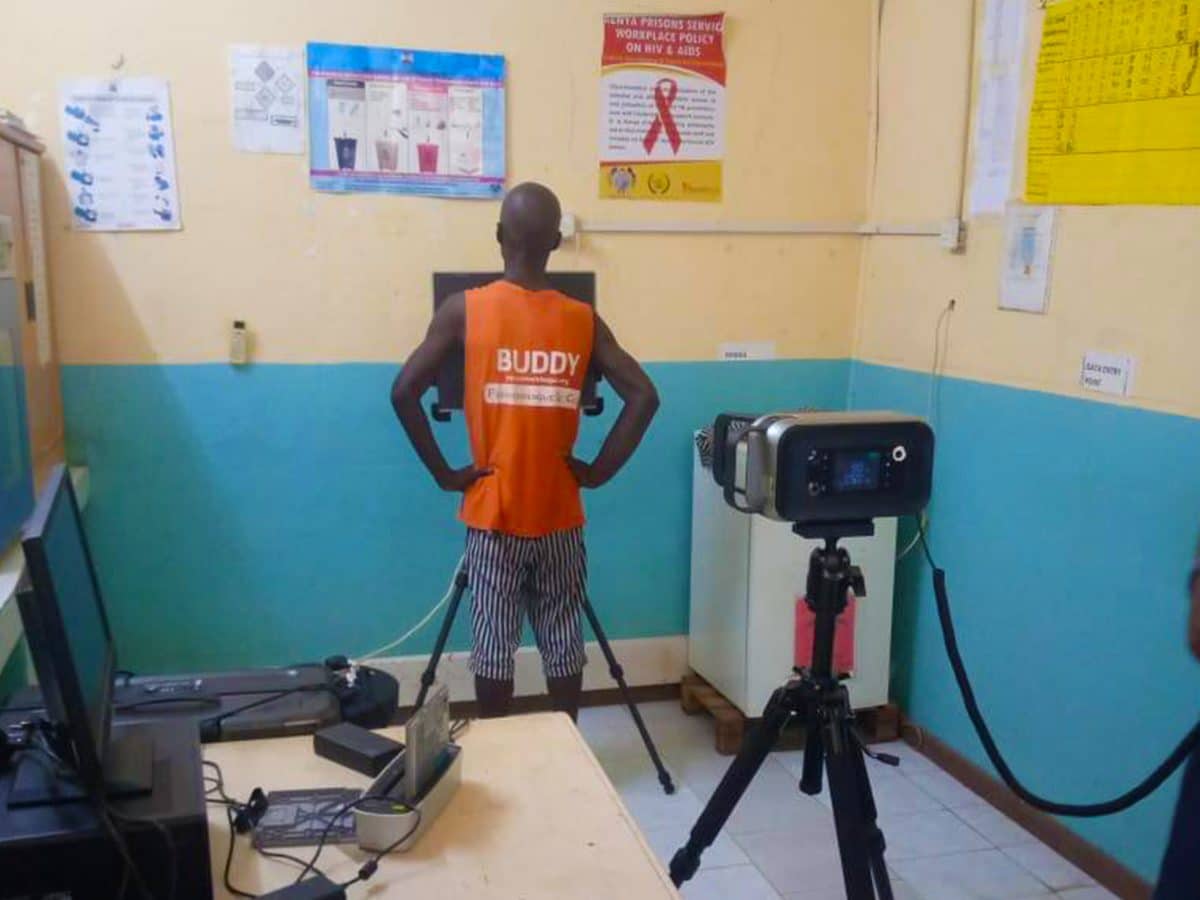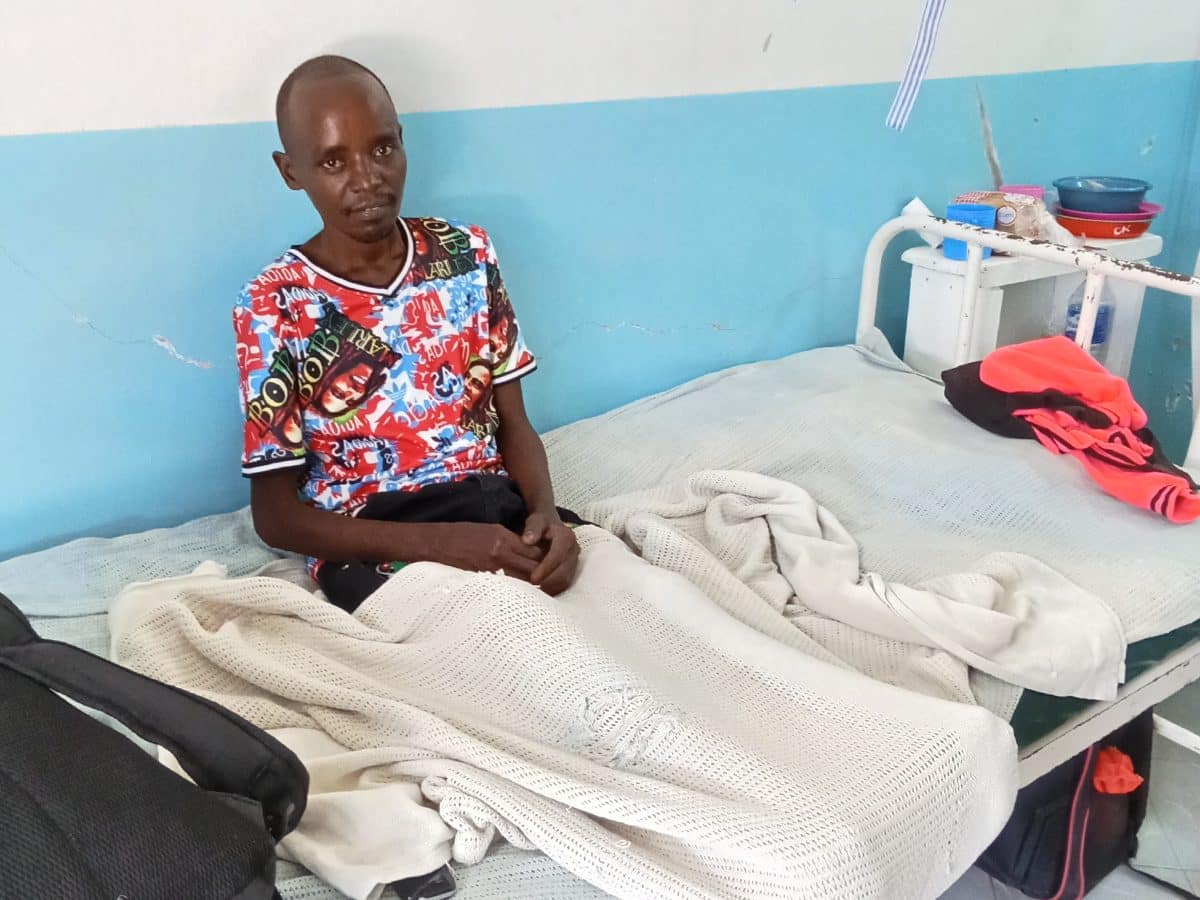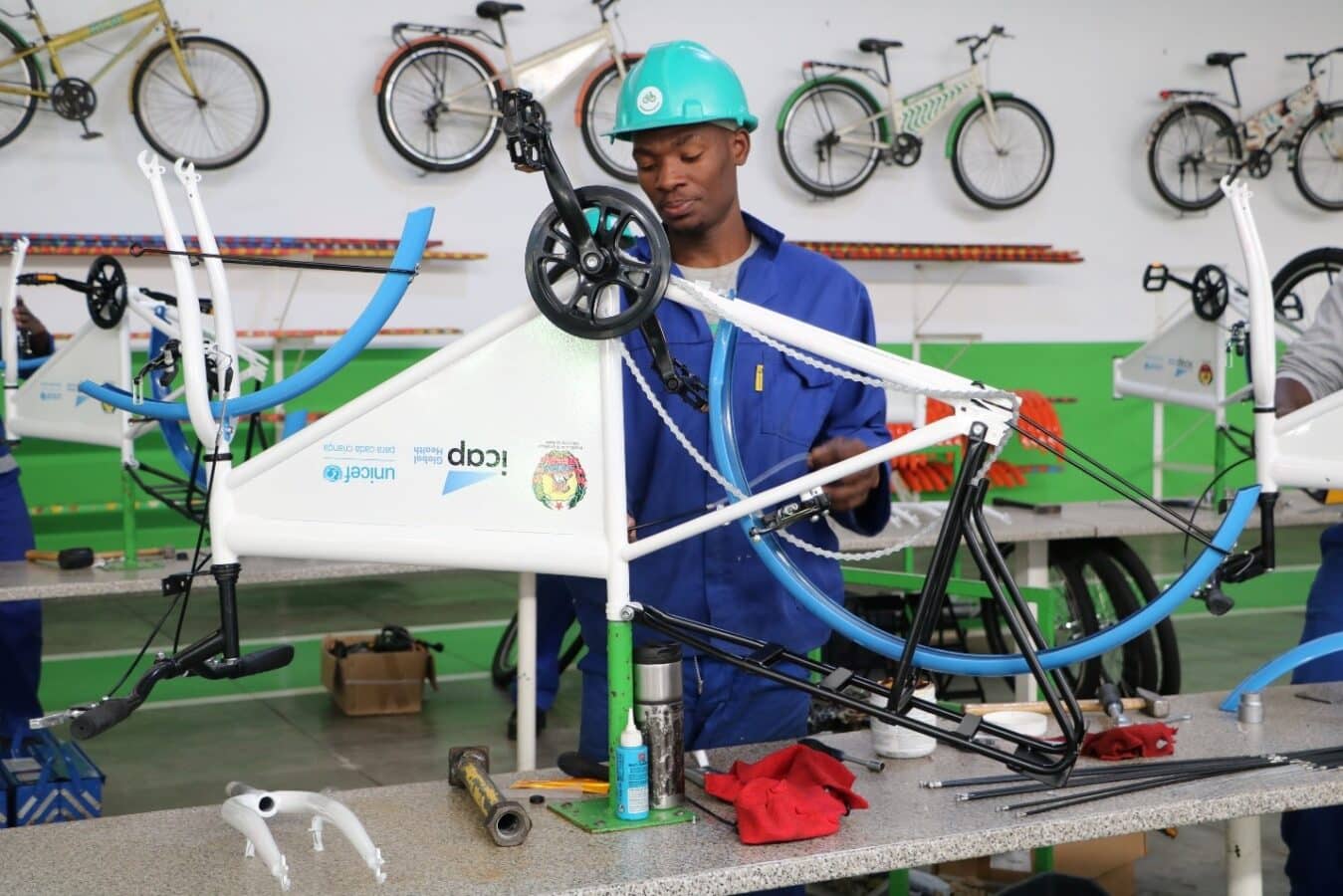When Maselobe Lebona was a nursing student at the National University of Lesotho (NUL), she often became nervous when she had to perform procedures on patients for the first time. Because she did not have an opportunity to practice certain skills in a clinical simulation setting, such as drawing blood, she was anxious and often unable to accomplish the task. Some patients only allowed her one chance. “This was a problem because hardly any students would get it right on the first attempt,” said Lebona, now a clinical supervisor at NUL. For patients with HIV, this can be particularly distressing as results determine when they will begin life-saving medications.
In a country like Lesotho, which has one of the highest HIV prevalence rates in the world, nurses are on the front lines and must master an array of skills in order to provide quality patient care. These skills are not only gained in the classroom—they must also learn critical clinical skills. Opportunities for clinical practice have traditionally been limited, so they must often learn essential skills in clinical settings where mistakes can compromise patient care. To assist nurses in learning and practicing these essential clinical skills, ICAP has worked with the Ministry of Health (MOH) to develop and equip simulation laboratories across the Lesotho.
First, an assessment was conducted of the simulation resources and the required equipment that were needed. In phase two, ICAP supported the redesign of curricula, trained faculty in clinical simulation scenarios and student debriefing methods, and developed a plan for sustaining simulation-based education. Finally, ICAP developed and implemented monitoring tools, provided mentoring and supported continued faculty education research in clinical simulation.
With support from PEPFAR, ICAP has developed nine simulation labs at nursing schools in Lesotho, Zambia, Malawi, and Ethiopia though the Nursing Education Partnership Initiative (NEPI). Six clinical simulation labs were established across Lesotho—the one at NUL was outfitted with low, medium, and high fidelity simulation models, which range from simple realistic anatomical devices to lifelike, human-sized computerized and physiologically responsive mannequins that can do everything from give basic responses to express disappointment if they believe the clinician lacks appropriate bedside manner. “I now feel in the best position to supervise, facilitate, and coordinate clinical practice,” said Lebona.
Since 2012, 250 students have graduated from the NUL program using the ICAP-supported simulation labs for training, and over 1,800 students have completed skills laboratories in the six locations across Lesotho.
“Nursing as we know it is a science and an art,” said Fusi Perekisi, a third year nursing student at NUL. “The university was able to equip students with knowledge; however, the art part of the course—which is the doing or the practical part—was neglected and this was evidenced by the perception that nurses from NUL have the knowledge, but lacked the skills.” The lack of resources for students to practice, as well as instructors who could ensure students demonstrate these skills, added to a belief that nurses weren’t equipped to provide quality patient care. Clinical simulation labs allow students to apply knowledge and gain confidence by doing.
In developing simulation-based education in Lesotho, ICAP has demonstrated that hands-on training is a valuable enhancement to nursing education and a necessary intervention for training nurses to be capable of managing the full-range of clinical challenges posed by HIV and other chronic diseases. Through clinical training of nurses, NEPI supports the scale up of HIV care and treatment in the region, supporting gains towards an AIDS-free generation.








